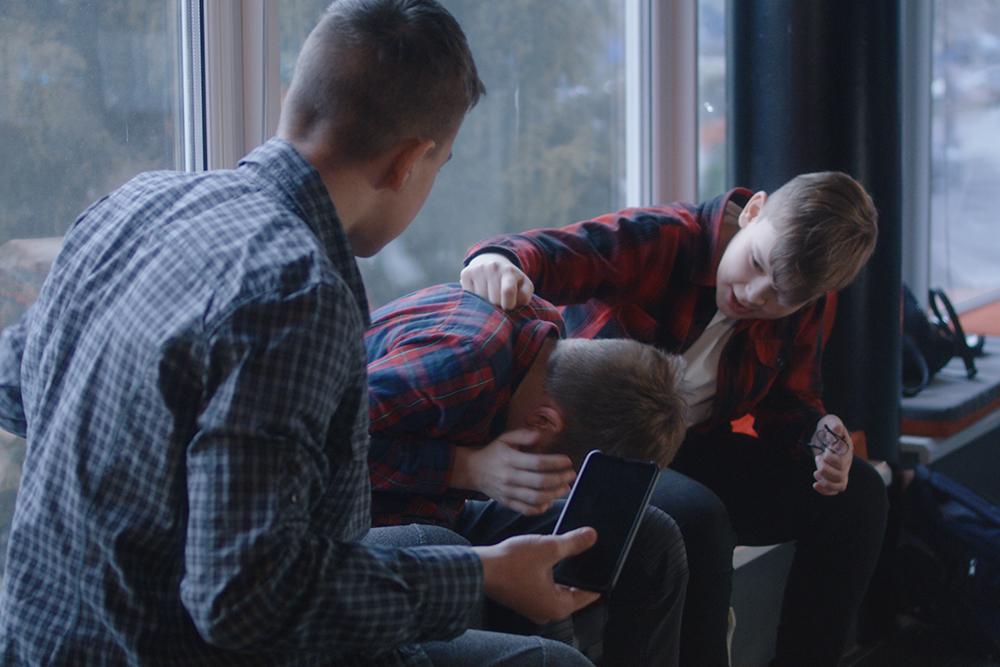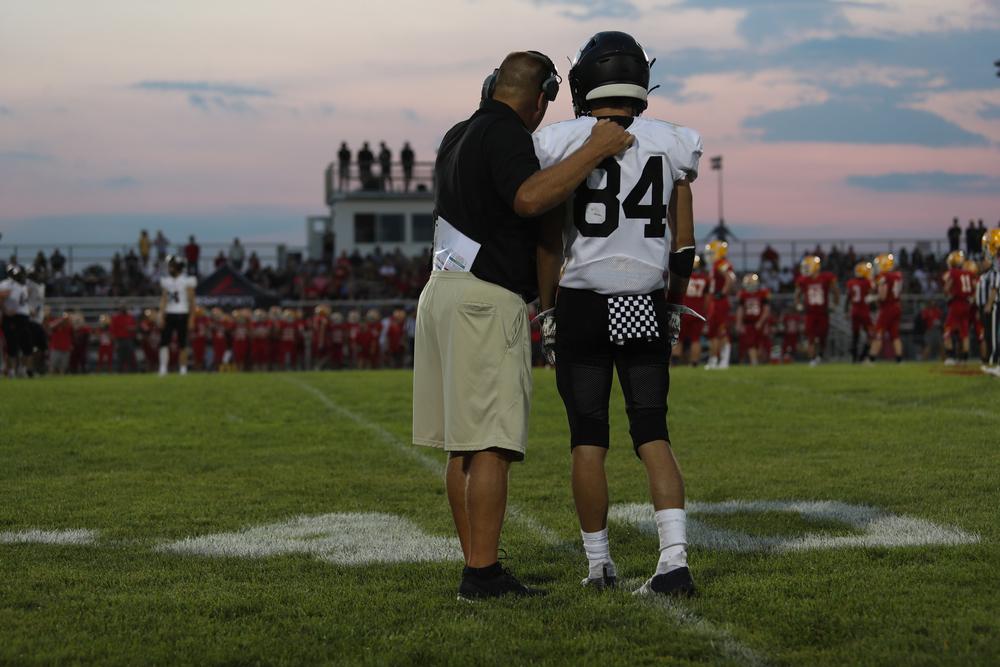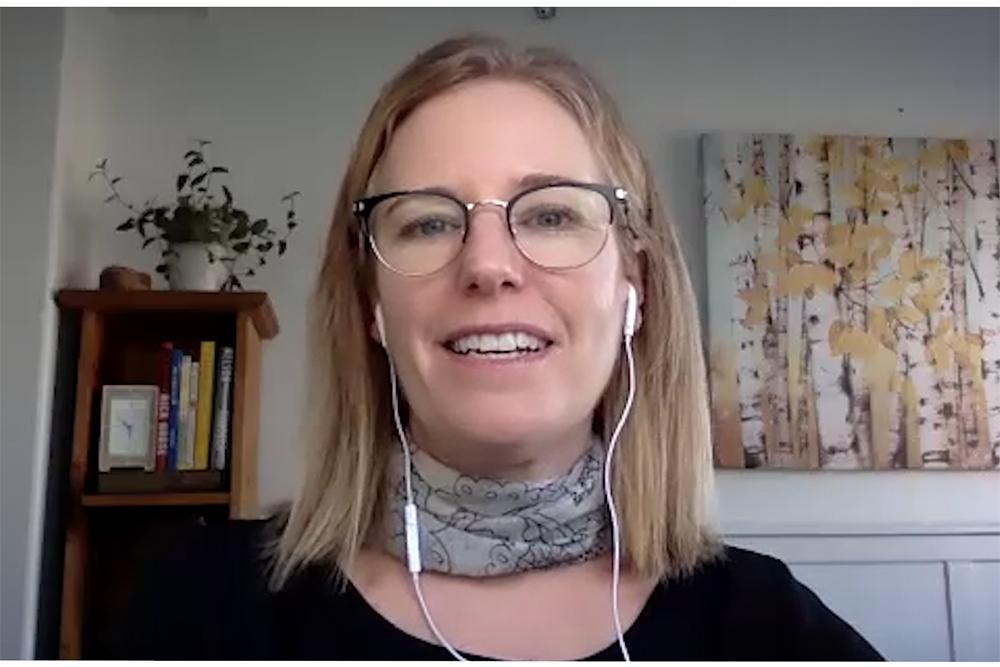Being an ally for your teammates doesn’t just mean posting on social media in support of a cause. It means standing up for them in tough situations, even when it’s uncomfortable. In sport and in school, this can be difficult. It can feel unpopular. But it’s the right thing to do.
Here, TrueSport Experts Kevin Chapman, PhD, clinical psychologist and founder of The Kentucky Center for Anxiety and Related Disorders, and President of Now What Facilitation, Nadia Kyba, MSW, are sharing their best advice for how you can truly support your teammates this season.
Understand what allyship means for your team
Being an ally for your teammates is part of being a good teammate. “As teammates, understand how much your words matter to the other people on the team,” says Chapman. “Not speaking up for others, letting injustices take place on your team, isn’t acceptable. It’s a cancer to the culture of the team.”
Acknowledge your own bias
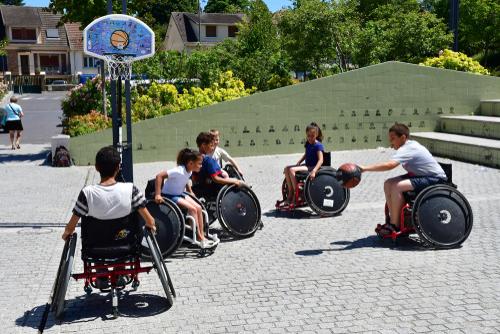 Everyone has biases and developing a better understanding of the ones that you have can help you be a better ally to your teammates. “It’s not easy to think about your own biases,” says Kyba. “But it’s critically important. Think about the biases you’ve been raised with.” For example, often young girls are given white dolls, while boys are given white superhero action figures. This sets up the bias that girls are nurturing and caregivers, while boys are the brave, strong defenders. In addition to these gender-based biases, our unconscious bias becomes that being white is the norm.
Everyone has biases and developing a better understanding of the ones that you have can help you be a better ally to your teammates. “It’s not easy to think about your own biases,” says Kyba. “But it’s critically important. Think about the biases you’ve been raised with.” For example, often young girls are given white dolls, while boys are given white superhero action figures. This sets up the bias that girls are nurturing and caregivers, while boys are the brave, strong defenders. In addition to these gender-based biases, our unconscious bias becomes that being white is the norm.
Along with race and gender, think about other things that may have created biases in your life: your financial situation or how you were taught to think about class and money; your religion; your sexuality and gender expression; and how different disabilities may lead to certain biases. Understanding your own bias helps you become a better ally because it allows you to better understand the microaggressions and everyday biases that your teammates may encounter.
Open the conversation with the team
It shouldn’t be the role of the transgender athlete on the team to push for a conversation about gender neutral bathrooms, or for the Black athlete to have to start the conversation around systemic racism. Being a good ally doesn’t just mean calling out aggressions and issues, it means being proactive. Consider asking your coach about having a team discussion around values and allyship. You may even want to ask a counselor who’s versed in these topics to come in to speak to the team. These preemptive measures not only make your teammates feel seen, but they may lead to a better understanding for the team as a whole. “Be active up front, rather than being passive until there’s a major issue,” says Kyba.
Remember differences aren’t always obvious
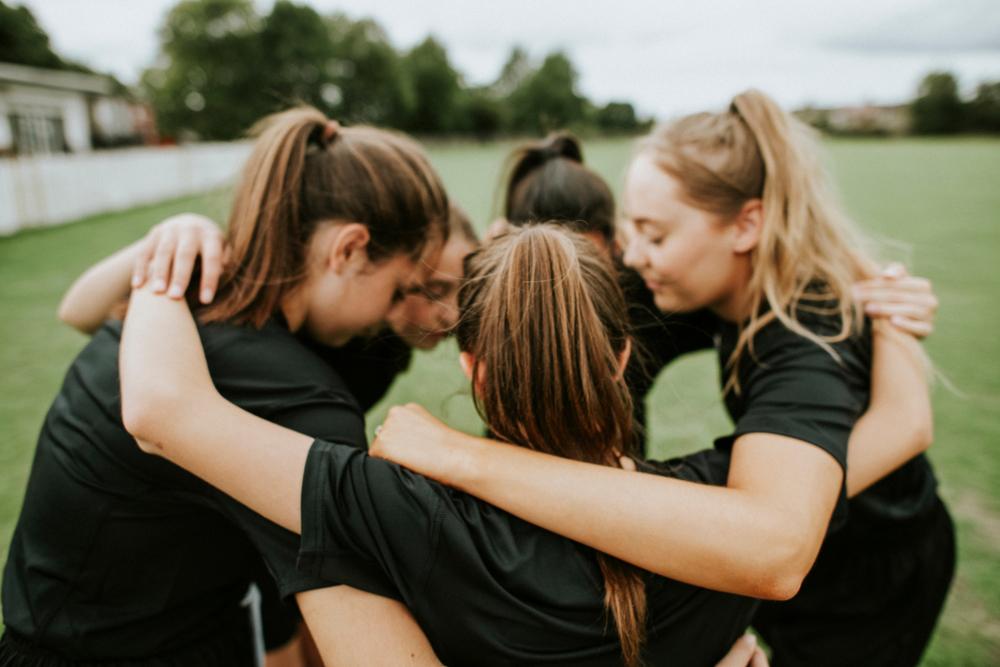 Some differences are more subtle, but equally important in terms of being a good ally. You may not have realized a teammate was Muslim, for instance, and needs to pray at certain times during the day. You may not know that a fellow athlete has a cognitive disability that makes it difficult for him to concentrate during team huddles. You may not be aware that one of your teammates is a transgender woman struggling to deal with a stadium’s bathroom policy.
Some differences are more subtle, but equally important in terms of being a good ally. You may not have realized a teammate was Muslim, for instance, and needs to pray at certain times during the day. You may not know that a fellow athlete has a cognitive disability that makes it difficult for him to concentrate during team huddles. You may not be aware that one of your teammates is a transgender woman struggling to deal with a stadium’s bathroom policy.
With this in mind, try to take a moment to consider your personal biases and how you can better meet the needs of your fellow athletes, coaches, or volunteers.
Lean into diversity
Chapman and Kyba agree that saying that you ‘don’t see color’ or you’re ‘color blind’ when it comes to race is not a good thing. You might think you’re saying the right thing when you say that color doesn’t matter, but color blindness actually discourages diversity. “When you say that everyone is the same, athletes don’t feel safe talking about their individual needs,” says Kyba. “If an athlete on the team is Muslim, that makes it hard for them to tell the coach that they need a space to pray. And to pretend that being African American is not a different experience from being White denies that there are still huge problems with systemic racism.”
Don’t be afraid to speak up
 “From a practical standpoint, being an ally means that if you hear something, like a racial slur or a derogatory comment about someone in a marginalized group, you stand up for them, even if they aren’t in the room,” says Chapman. “It means telling a teammate that what she said was offensive, and asking something like, ‘Can you help me understand why you thought that was okay to say?’” Chapman adds that giving someone the space to express what they meant by the comment, and then providing some education about why that comment was not appropriate is the best approach. Kyba agrees, and adds that sometimes, stating back to them what they said (especially in the case of a derogatory comment) and asking them to explain it can help that person quickly see that what they said was inappropriate.
“From a practical standpoint, being an ally means that if you hear something, like a racial slur or a derogatory comment about someone in a marginalized group, you stand up for them, even if they aren’t in the room,” says Chapman. “It means telling a teammate that what she said was offensive, and asking something like, ‘Can you help me understand why you thought that was okay to say?’” Chapman adds that giving someone the space to express what they meant by the comment, and then providing some education about why that comment was not appropriate is the best approach. Kyba agrees, and adds that sometimes, stating back to them what they said (especially in the case of a derogatory comment) and asking them to explain it can help that person quickly see that what they said was inappropriate.
Be aware of microaggressions
While you might be reading this article and thinking that no one on your team makes blatant racial slurs or derogatory comments, microaggressions are a very real problem as well. Microaggressions are seemingly small everyday instances of racism, sexism, homophobia, or religious oppression. If someone is missing practice on Saturday because of their religion, and the coach rolls his eyes as he mentions it, that’s a microaggression. It’s a microaggression to say that you ‘don’t see color,’ or that ‘you can’t be racist because you have Black friends.’ “Don’t stand idly by if you see a microaggression,” says Chapman. “There should be a zero-tolerance policy, and calling those out is important. You may even realize that you’ve been guilty of your own microaggressions, and if that’s the case, humbly apologize, label what was wrong about it, and learn from it.”
Take it offline
Remember that posting about your allyship on social media might feel great in the moment, but it needs to be backed up in real life. “Being an ally means being actively engaged,” says Kyba. “Rather than just throwing a post on social media, you have to actually become a little bit uncomfortable, whether that means asking questions, standing up for a teammate, or having a conversation around race or gender or sexuality with your team.”
Don’t just be an ally, be an accomplice
 “I like using the word accomplice rather than ally,” says Chapman. “To me, there is a difference. This example tends to resonate with people and makes it easier to understand: If you were planning to rob a bank, an ally would be someone who would keep your secret and not say anything. An accomplice would drive the getaway car. So many people say that they’re allies, but when it comes time for them to take a risk, be uncomfortable, and actually stand up for someone, they won’t say anything. They won’t take action. An accomplice takes action.”
“I like using the word accomplice rather than ally,” says Chapman. “To me, there is a difference. This example tends to resonate with people and makes it easier to understand: If you were planning to rob a bank, an ally would be someone who would keep your secret and not say anything. An accomplice would drive the getaway car. So many people say that they’re allies, but when it comes time for them to take a risk, be uncomfortable, and actually stand up for someone, they won’t say anything. They won’t take action. An accomplice takes action.”
Know when to seek help
There may be points where you need to be the one to seek outside help from a coach, counselor, or school administration. Bullying, racial slurs, and violence obviously can’t be tolerated on a team, and as an ally, you can be the one to speak up and tell someone in a leadership position what’s going on.
It’s not always easy to know when to get help, though. “It’s always appropriate to say something to the perpetrator, when it’s a peer-to-peer situation,” says Chapman. “But if it’s a super flagrant issue like bullying, then you may also need to take it to a higher level—and this is especially true if multiple people are involved.”
_________________________
Takeaway
Being an ally means doing more than reposting content on Instagram. It means standing up for your teammates when they’re treated unfairly and making sure that you’re also working to confront your own biases and assumptions. And it means that you may need to get uncomfortable.
